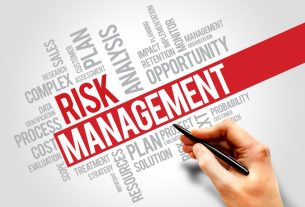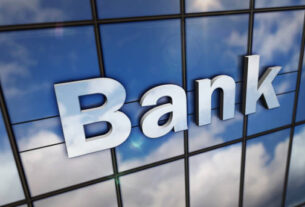In this article, we will solve all your queries related to Hascol share price,like hascol share price today,hascol share price forecast,hascol share price today in Pakistan.
Hascol Petroleum Limited is a Pakistani oil distribution company engaged in the business of oil distribution. It is headquartered in Karachi, Pakistan.
The company has the distribution rights for the German lubricant Fuchs in Pakistan.
Table of Contents
History of the company
The company was founded in 2001 and went public in 2007. In 2005, the company received a license from the government to market petroleum.
In 2014, the company was listed on the Karachi Stock Exchange; in 2017, it announced it would invest $20 million with Fuchs to build a new plant in Bin Qasim, Karachi. That same year, the company became the country’s second-largest oil trader.
Vitol, a global commodities trader, acquired a 15 percent stake in Hascol between 2015 and 2016, and in October 2019, Vitol announced it would increase its stake to 41 percent.
In 2021, a scandal came to light in which the company had falsified its books and financial statements 2019. This, along with mounting losses, caused the company’s share price to plummet from over ₨ in 2018 to around ₨ in 2021, and the Pakistan Stock Exchange declared the company insolvent. The company’s assets were frozen by the Sindh High Court at the request of creditors.
Senate committee briefed on Hascol debacle
At a hearing of the Senate Standing Committee on Finance, the Securities and Exchange Commission of Pakistan (SECP), the corporate sector regulator, and the State Bank of Pakistan (SBP), the banking sector regulator, presented their initial findings on the oil company’s case.
Haskol defaulted on its debts, putting minority shareholders’ funds at risk, turning the company’s equity negative and incurring an annual loss of 26 billion rupees. The meeting was chaired by Senator Muhammad Talha Mehmood.
The SECP will initiate criminal proceedings against the company in the next three months after completing its investigation,” the authority told the standing committee.
SBP Deputy Governor Jameel Ahmad clarified at the meeting that “Hascol had a great commitment to a client and in this case, there was a mutual connection, so something bad happened.” However, the bank did not violate any regulations by granting the loan to Hascol Petroleum, he added.
SBP Secretary-General Inayat Hussein said, “Hascol has embezzlement and stock losses. The company’s bank debt, which was only 24.3 billion rupees, has increased to 56 billion rupees, Hussain said.
The central bank said Hascol had defaulted on loans and the bank had classified most of its exposures and made provisions of 39.4 billion rupees.
As of June 30, 2021, the National Bank of Pakistan (NBP) had the largest exposure of 18.83 billion rupees, and Habib Bank (HBL) the second largest at 5.44 billion rupees, he added.
The standing committee chairman has asked the central bank to provide details of the 18 banks that have granted loans to Hascol, the collateral provided by the company, a list of individuals who have provided personal guarantees for the loans, and the financial status of those individuals.
Citing a meeting between Hascol officials and the banks in April this year, Hascol Chairman Alan Duncan said previous management was scandalous, betrayed trust, failed to keep proper records, and ran the company unprofessionally.
Massive corruption worth billions of rupees uncovered
According to a report by Baaghi TV, Pakistan’s biggest financial scandal has been uncovered before our eyes as the listed company HASCOL failed to hold its annual general meeting and disclose its audited finances. Now everyone from top corporate officials to government officials is running for cover.
The details reveal that Haskol is nothing less than a criminal enterprise that has taken money from poor investors and accumulated debt based on fraudulent accounts and fake purchase orders. The fraud is obvious and Haskell is still trying to cover it up.
But there are questions that need to be answered.
- How did Haskol fall from 389.41 rupees to 7.02 rupees per share?
- Why and how did banks grant HASCOL large loans without doing due diligence, taking such a high risk when the company was already accumulating losses?
- Why was the Board of Directors reconstituted and why did the members of the Board resign? Why did the chief executive officer (CEO) resign?
- The biggest question is why world-renowned accounting firms like Grant Thornton International and Ernst & Young Global Limited resigned from the account. Were they asked to cover up crimes already committed?
- What role did the former CEOs, especially Saleem Butt, play?
- Why were a British politician and former minister appointed chairman? Whose crimes was Chairman Alan Duncan trying to cover up?
The questions are endless
From a relatively small start in the oil sector in 2001 to become the country’s second-largest oil retailer after Pakistan State Oil (PSO), the company’s annual revenue has increased almost ninefold (from 25.9 billion rupees in 2012 to 233.6 billion rupees in 2018).
In addition, 14 domestic banks have granted HASCOL loans totaling 58 billion rupees, which are now considered non-performing loans. In addition, investors in the Pakistan Stock Exchange (PSX) are said to have suffered multi-billion rupee losses.
The Pakistan CAA is dormant because Kuwait has banned the operation of the PIA
Unfortunately, of the 14 banks involved in the historic 58 billion rupees financial fraud in Pakistan, not a single one has taken action against the bank executives who were involved in the dealings with HASCOL? Have any of the bankers been charged with fraud, negligence, or incompetence? Has the State Bank of Pakistan (SBP) initiated an investigation against these banks?
It is very important to note at this point that a fraudulent financial debt of this magnitude would not have been possible without the involvement of the bankers themselves. Where are the Federal Investigation Agency (FIA) and the commercial banks?
Vitol Dubai Limited (VTL), a large global energy trading company, acquired 15% of the company’s shares in 2015 and increased its stake to 25% the following year (i.e., 2016). Since then, Vitol has increased its stake and now holds 40% of the company’s shares.
Several other questions arise.
- Why and how did Vitol acquire 40% of Pakistan’s strategic assets?
- Did the Securities and Exchange Commission of Pakistan (SECP) or the Pakistan Stock Exchange (PSX) conduct due diligence on Vitol, a company with a dubious past?
- For example, Vitol Dubai Limited settled a criminal investigation for bribery and market manipulation in Brazil in December 2020. How is it that this company was allowed to operate in Pakistan and commit the largest financial fraud in history?
Also, visit,

Oliver is a professional blogger and a seasoned business and finance writer. With a passion for simplifying complex financial topics, he provides valuable insights to a diverse online audience. With four years of experience, Oliver has polished his skills as a finance blogger.



